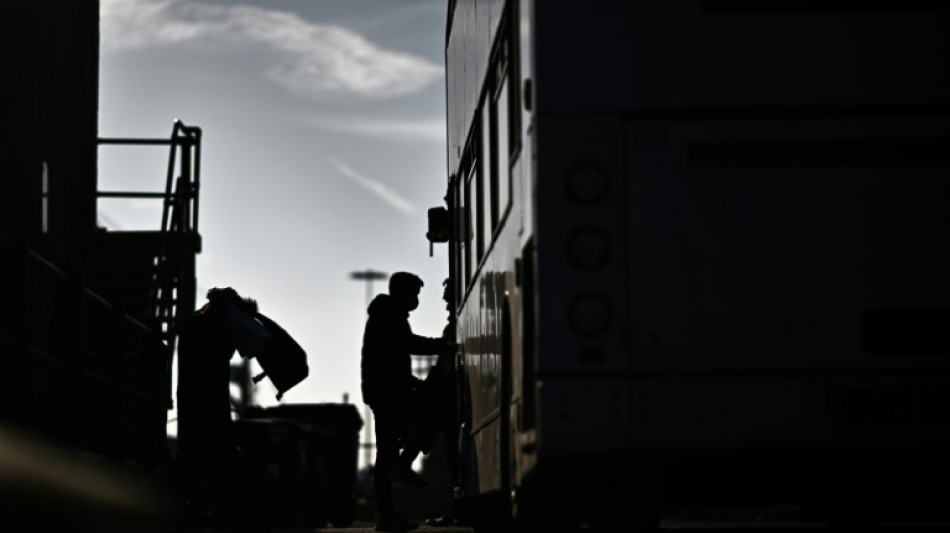
-
 End of Russian gas via Ukraine sparks unease in eastern Europe
End of Russian gas via Ukraine sparks unease in eastern Europe
-
Zelensky vows Ukraine will do everything in 2025 to stop Russia

-
 Island-wide blackout hits Puerto Rico on New Year's Eve
Island-wide blackout hits Puerto Rico on New Year's Eve
-
Serbia enters New Year with student protests over train station tragedy

-
 Romania, Bulgaria join borderless Schengen zone
Romania, Bulgaria join borderless Schengen zone
-
US Capitol riot fugitive seeks asylum in Canada

-
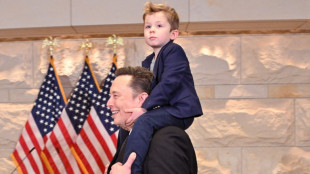 Musk flummoxes internet with 'Kekius Maximus' persona
Musk flummoxes internet with 'Kekius Maximus' persona
-
US stocks slip as European markets ring out year with gains

-
 Olmo's Barcelona future in air over registration race
Olmo's Barcelona future in air over registration race
-
Venezuela opposition urges protests against Maduro's inauguration

-
 Syria's de facto leader meets minority Christians
Syria's de facto leader meets minority Christians
-
Suriname ex-dictator Bouterse to be cremated on Saturday

-
 £1.5 mn reward offered after 'brazen' London gem raid
£1.5 mn reward offered after 'brazen' London gem raid
-
Zimbabwe abolishes the death penalty

-
 Barcelona race against clock to register Olmo
Barcelona race against clock to register Olmo
-
Arteta wants Arsenal to hammer away in title race

-
 Panama marks canal handover anniversary in shadow of Trump threat
Panama marks canal handover anniversary in shadow of Trump threat
-
Gaza hospital chief held by Israel becomes face of crumbling healthcare

-
 Russian advances in Ukraine grew seven-fold in 2024, data shows
Russian advances in Ukraine grew seven-fold in 2024, data shows
-
US, European stock markets look to ring out year with gains

-
 US farmers fret over Trump's deportation plans
US farmers fret over Trump's deportation plans
-
BBC celebrates 100 years of 'poetic' shipping forecast
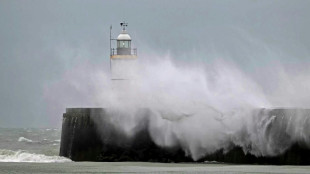
-
 West Ham's Bowen sidelined with foot fracture
West Ham's Bowen sidelined with foot fracture
-
Global markets rode AI, interest rate roller coaster in 2024

-
 Ocalan: PKK chief held in solitary on Turkish prison island
Ocalan: PKK chief held in solitary on Turkish prison island
-
European stock markets end year with gains

-
 Yemen's Huthis a 'menace' for Israel despite weakened Iran: analysts
Yemen's Huthis a 'menace' for Israel despite weakened Iran: analysts
-
Rooney exit extends managerial struggles for England's 'golden generation'

-
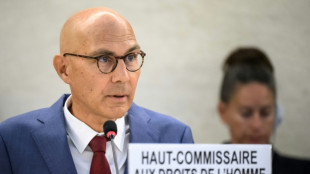 Gaza healthcare nearing 'total collapse' due to Israeli strikes: UN
Gaza healthcare nearing 'total collapse' due to Israeli strikes: UN
-
German leaders hit back at Musk's support for far right
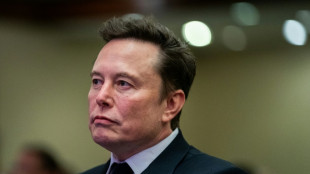
-
 Southgate won't be 'Sir' at home after knighthood
Southgate won't be 'Sir' at home after knighthood
-
Rooney leaves Plymouth after just seven months in charge

-
 Kyrgios needs 'miracle' after return from long injury layoff
Kyrgios needs 'miracle' after return from long injury layoff
-
Raducanu pulls out of Australian Open warm-up with back problem

-
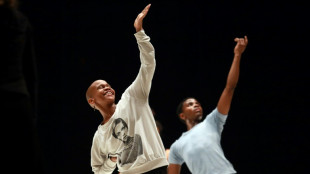 Celebrated S.African contemporary dancer Dada Masilo dies aged 39
Celebrated S.African contemporary dancer Dada Masilo dies aged 39
-
Five talking points at the midway point of the Premier League season

-
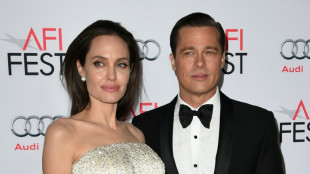 Angelina Jolie and Brad Pitt reach divorce settlement
Angelina Jolie and Brad Pitt reach divorce settlement
-
Djokovic, Sabalenka win season-openers but Kyrgios loses on return

-
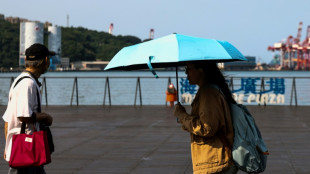 Taiwan says 2024 was hottest year on record
Taiwan says 2024 was hottest year on record
-
China says shared Covid information 'without holding anything back'
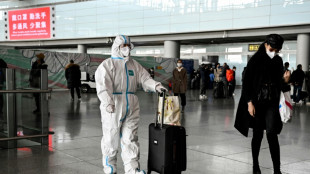
-
 Kyrgios goes down fighting on return, Sabalenka wins season-opener
Kyrgios goes down fighting on return, Sabalenka wins season-opener
-
Xi says China must apply 'more proactive' macroeconomic policies in 2025
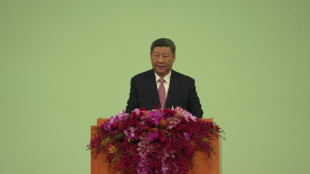
-
 Gauff, Paolini on fire as USA, Italy surge into United Cup quarters
Gauff, Paolini on fire as USA, Italy surge into United Cup quarters
-
Patients brave mental health desert in Mauritania
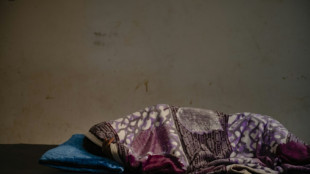
-
 Hart triple-double sparks Knicks to eighth straight NBA win
Hart triple-double sparks Knicks to eighth straight NBA win
-
Angelina Jolie and Brad Pitt reach divorce settlement: report

-
 Sabalenka opens season with 'tricky' win in Brisbane
Sabalenka opens season with 'tricky' win in Brisbane
-
S. Korea starts releasing Jeju Air crash victims to families

-
 China's frigid northeast thrives on 'little potato' tourism boom
China's frigid northeast thrives on 'little potato' tourism boom
-
Paolini on fire as Italy surge into United Cup quarter-finals


Hosting Britain's migrants: The view from Rwanda
Britain's controversial deal to send migrants and asylum-seekers to Rwanda has attracted a flood of criticism in the UK, with opposition politicians, campaigners and the UN refugee agency calling for the multi-million-dollar agreement to be scrapped.
But little has been said about the view from Rwanda -- a tiny nation of 13 million people in Africa's Great Lakes region that has drawn praise for its modern infrastructure but sparked unease over its record on human rights.
Here is a look at Kigali's reasons for signing the deal and the challenges ahead:
- Why is Rwanda doing this? -
The deal will be funded by the UK to the tune of up to £120 million ($157 million, 144 million euros), but observers say cash may not be Kigali's main motivation.
President Paul Kagame has sought to position Rwanda as a Western ally and firefighter for conflicts across Africa, sending thousands of troops to battle Islamic State-linked jihadists in Mozambique last year.
The deal is aimed at bolstering Rwanda's international prestige and deflect concern over its handling of human rights, Kigali-based lawyer and analyst Louis Gitinywa told AFP.
"President Kagame is eyeing to leverage this agreement as a vote of confidence (in) his human rights record," Gitinywa said.
It will burnish the profile of Kagame, who has kept tight control over Rwanda since the 1994 genocide, "as a key African leader -- a kind of Mister-Fix-it" for the continent, Gitinywa added.
"This also probably ensures that President Kagame (has) secured the diplomatic backing of the UK when resolutions against Rwanda are submitted and discussed at the UN Security Council."
- How will this affect Rwanda's human rights record? -
In January last year, the British government took Kigali to task over "continued restrictions to civil and political rights and media freedom".
But last week, Prime Minister Boris Johnson appeared to have reversed course, hailing Rwanda as "one of the safest countries in the world, globally recognised for its record of welcoming and integrating migrants".
The contradictory comments offered a glimpse of how the deal might help Kigali rewrite the public narrative around its treatment of dissidents, including those who have fled abroad.
"Rwanda has routinely demonstrated how it holds protections afforded refugees under international law in low regard," said Lewis Mudge, Central Africa director at Human Rights Watch.
"There are credible allegations that Rwandan agents carried out assassinations of Rwandan refugees abroad and many refugees fear the Rwandan government's long arm as far afield as Europe, Canada or Australia," he told AFP.
Last September, "Hotel Rwanda" hero and Kagame critic Paul Rusesabagina was sentenced to 25 years in jail on terrorism charges, following his arrest in August 2020 when a plane he believed was bound for Burundi landed instead in Kigali in what his family called a kidnapping.
The country was ranked 156th out of 180 countries in the 2021 World Press Freedom Index compiled by Reporters Without Borders (RSF), a fall of one place over with 2020.
- How do Rwandans feel about the deal? -
Rwandans have largely stayed tight-lipped about the agreement, although some have praised it.
One positive voice is that of Tom Mulisa, lecturer of constitutional law at the University of Rwanda.
"It is a good thing that Rwanda has positioned itself in this way, as a way of contributing to solve the immigration crisis that is affecting the whole world," he told AFP.
Local journalist John Williams Ntwali is among the few willing to make his unease public, saying the agreement "violates the rights of refugees and asylum seekers."
"It is an immoral deal that forces people to go to a country that they did not choose," he added.
- What challenges will Rwanda face? -
Frank Habineza, president of the opposition Democratic Green Party of Rwanda, said the deal was not sustainable, pointing to already fierce competition for land and other resources.
"Taking on migrants from the UK will increase the land burden and survival challenges for the limited natural resources available," he said in a statement last week.
Opposition leader Victoire Ingabire, a fierce critic of Kagame, also highlighted the economic pressures facing the country following the Covid-19 pandemic.
"It is uncertain how Rwanda would support relocated migrants with their personal development and employment," she said.
"The Rwandan government (should) focus on solving its political and social internal issues that make its citizens... refugees in other countries before it offers to host refugees/migrants."
Rwanda has previously taken in African refugees stranded in Libya under an agreement with the African Union and the UN refugee agency. Last year it offered temporary asylum to Afghans fleeing a Taliban takeover.
Few details have been released about how the UK deal would be implemented. The accord is also widely expected to face a legal challenge that may force its architects to abandon it.
L.Durand--AMWN